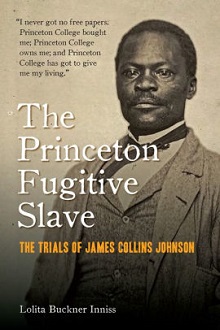2018 School Spending Survey Report
The Princeton Fugitive Slave: The Trials of James Collins Johnson
Fordham Univ.
Sept. 2019.
272p.
illus. notes. bibliog. index.
ISBN 9780823285341. $29.95; ebk. ISBN 9780823285358.
HIST
COPY ISBN
VERDICT Inniss presents a riveting legal review of a high-profile fugitive slave case. Whereas Johnson’s story had previously been localized, this study is a welcome addition to all research, legal, and public libraries as an invaluable addition to this emergent field of studies.
RELATED
ALREADY A SUBSCRIBER? LOG IN
We are currently offering this content for free. Sign up now to activate your personal profile, where you can save articles for future viewing




Comment Policy:
Comment should not be empty !!!